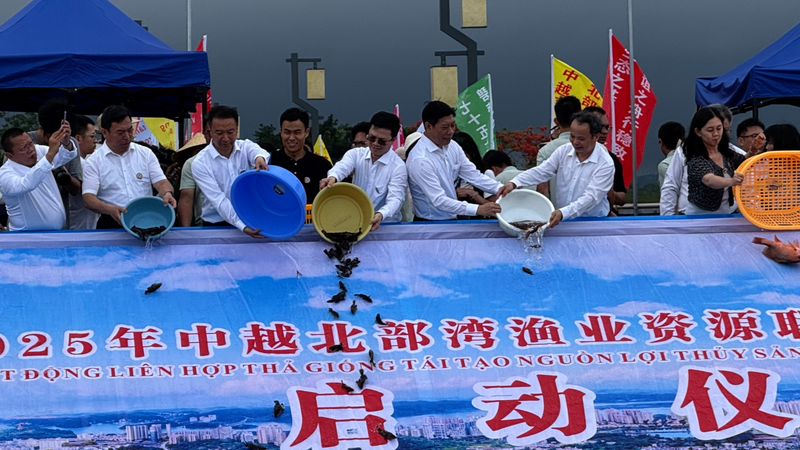China and Vietnam have long collaborated to rejuvenate fish stocks in the Beibu Gulf, a shared body of water in the South China Sea. Through a joint fishery stock enhancement program, government agencies, scientists, and coastal communities on the shores of the Chinese mainland and Vietnam are working hand in hand.
At a recent event in the border region of Guangxi Zhuang Autonomous Region on the Chinese mainland, officials and local experts gathered to release batches of juvenile fish and shellfish into nearby waters. This initiative not only helps bring marine ecosystems back to life—from coral reefs to seagrass meadows—but also offers a fresh boost to fishermen’s livelihoods on both sides.
Residents report healthier catches and new opportunities as they adopt sustainable practices learned through community workshops. By blending traditional knowledge with modern hatchery techniques, the program aims to balance economic growth with environmental stewardship.
As challenges like climate change and overfishing threaten coastal ecosystems around the globe, the Beibu Gulf partnership stands out as a model of transnational cooperation. With plans to expand seed releases, monitor water quality, and involve more young people in marine science, China and Vietnam are charting a course toward a more sustainable future.
Whether you’re a young professional tracking emerging sustainability trends, an influencer seeking real-world impact, a sports fan curious about community stories, or a traveler planning a sustainable coastal adventure, the Beibu Gulf program delivers a powerful lesson: by working together, nations can protect marine life, support local economies, and chart a more resilient future.
Reference(s):
China and Vietnam unite to boost marine life in shared waters
cgtn.com




